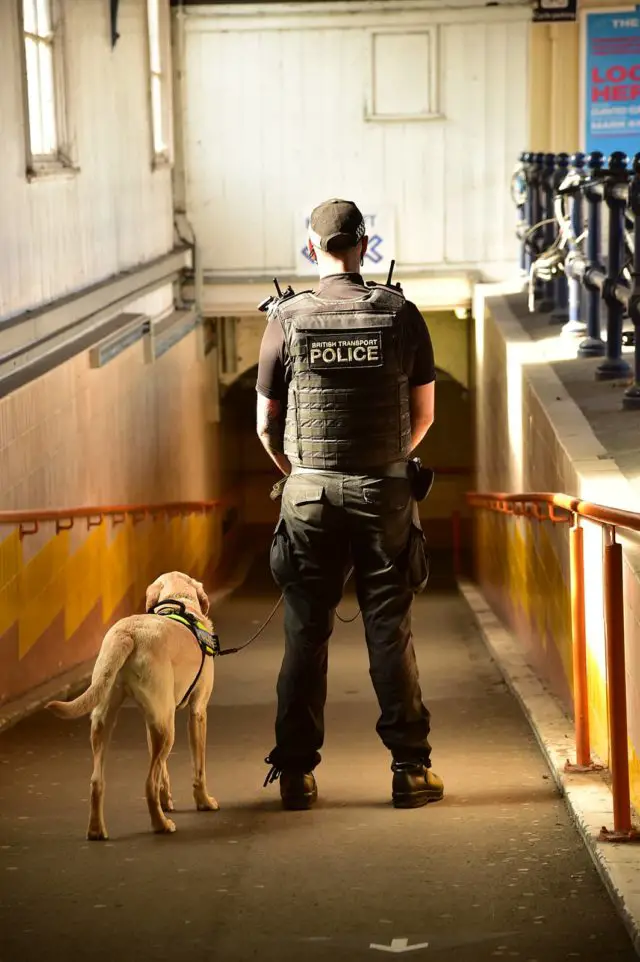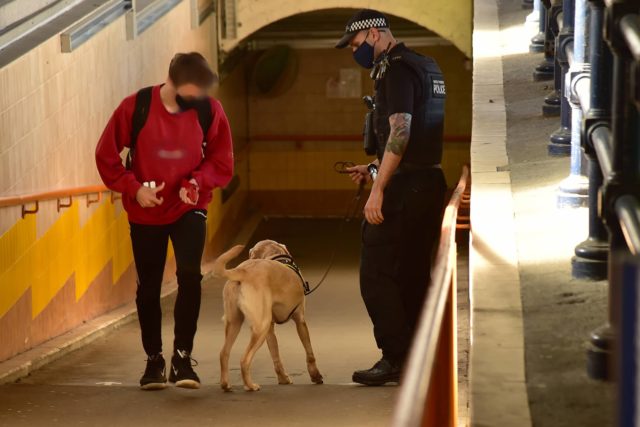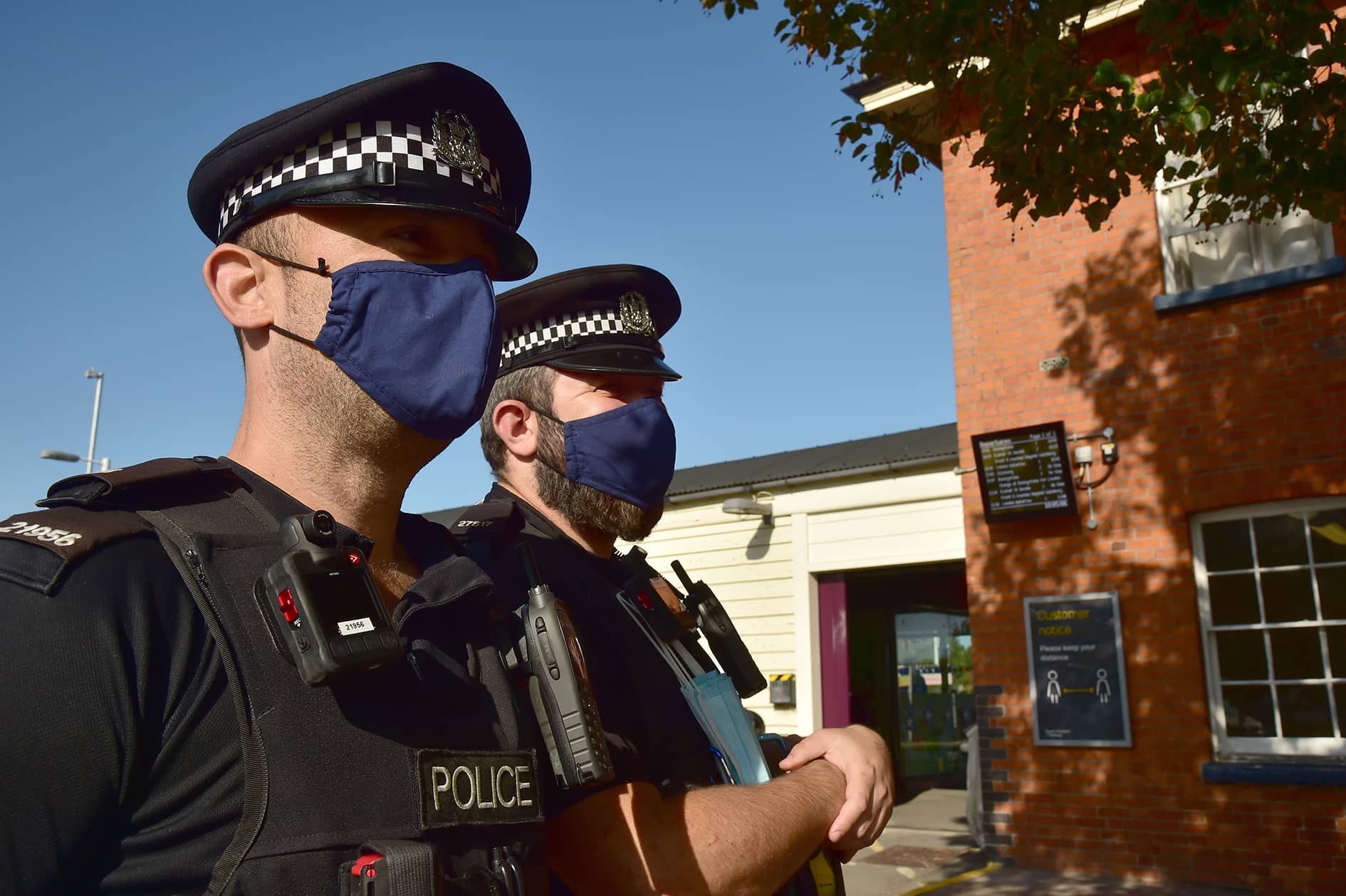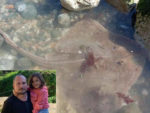Hampshire Constabulary coordinated a week of action in last week to tackle county lines drug dealing and the associated exploitation of vulnerable people.
‘County lines’ is a term used to describe organised criminal networks involved in exporting illegal drugs out of bigger cities into smaller towns in the UK, using dedicated mobile phone lines or other form of ‘deal line’. They are likely to exploit children and vulnerable adults to move and store the drugs and money, and they will often use coercion, intimidation, violence and weapons.

The operation was the result of a coordinated effort between officers and staff from Operation Monument, Operation Themis and the High Harm Neighbourhood Policing Teams, working in partnership with the South East Regional Organised Crime Unit (SEROCU), British Transport Police and Ministry of Defence Police to ensure a joined up approach to sharing information and resources to dismantle county lines networks.
The operation
Last week’s operation saw officers target 53 cuckooed addresses, stop/check over 85 vehicles for organised crime usage, rail stations and ferry ports checked for ‘drug mules’ or signs of child exploitation carry drugs and a further 12 pre-planned warrants executed on addresses believed to be used in county lines activity through intelligence gathered in the weeks before this national week of intensification.
‘Cuckooing’ is the term used for when drug dealers use violence, exploitation and intimidation to take over the home of a vulnerable person in order to use it as a base for drug dealing. Officer spoke to 39 adults considered vulnerable and potentially at risk of being exploited by dealers and signposted them to appropriate support.

16 children identified as vulnerable and safeguarded
The Neighbourhood Policing Teams used the week to engage with local residents in order to share information about county lines drug dealing in the area, to reassure, and to raise awareness of the issues surrounding county lines with 16 children being identified as vulnerable and safeguarded.
A significant amount of intelligence has also been gathered through this week of action helping to inform future assessment of threat, risk and harm in our communities from these organised crime networks.
Recovered and seized
Results from our activities included recovery and seizure of the following:
- 166g crack cocaine and 88+ wraps
- 47g heroin and 85+ wraps
- 1.26 kg cocaine and two wraps
- 580g cannabis.
- An additional £45k+ worth of suspected Class A drugs (yet to be forensically analysed) was also located from 3 x large seizures in Southampton, Gosport and Andover.
- £47k+ cash (POCA)
- Over 10 weapons – the vast majority being knives and a machete. In additional knife surrender bins and knife sweeps recovered another 10 knives in Southampton.
- A large quantity of suspected stolen goods
- 51 mobile phones
Mostly male adults
The vast majority of the arrests were for adult males, with eight of those brought into custody under 18, two females, with offenders from London, Dorset and Kent.
During the week of action four county line and serious violence drug related networks have been disrupted.
The British Transport Police’s county lines taskforce ran a number of successful operations in Basingstoke, Southampton and Andover, which Minister of State for Crime and Policing Kit Malthouse attended, to tackle drugs on the railway network, and to protect children and vulnerable adults who are often exploited by gangs into selling or moving drugs, with a seizure in Basingstoke of 300 wraps of heroin.
Efforts are made to safeguard any vulnerable or exploited person arrested as part of County Lines, referring them to services built to encourage and support the person away from dangerous criminal activity.
Lecointe: County Lines cause misery for our communities
Hampshire Constabulary’s led for drug-related harm, Chief Superintendent, Nigel Lecointe, said:
“At the heart of this week of intensification is the aim to bring down county lines networks and safeguarding exploited children and the vulnerable.
“County Lines and local drug networks cause misery for our communities and it is absolutely right that we continue putting significant effort into identifying and arresting those involved.
“The collaborative work between Hampshire Constabulary and our partners will only increase and intensify in the coming weeks and months ahead. We will continue to shine a spotlight on and bring to justice those running these toxic drug networks.
“There is this strong link between drugs and violence, and we have made significant efforts to understand the impact of those involved in County Lines on violence and other crime that spills into our neighbourhoods.”
#LookCloser awareness campaign
Hampshire Constabulary has also been supporting and sharing BTP and The Children’s Society’s #LookCloser awareness campaign to encourage professionals and the public to ‘Look Closer’ for signs that a child may be at risk of criminal exploitation.
It is aimed at anyone who may encounter children in their daily lives, including service sector employees and transport workers, as public spaces are often where exploited children are most visible. Key signs of exploitation include children travelling alone, particularly during school hours, late at night or on a regular basis. They may also look lost or in unfamiliar surroundings and may be carrying large amounts of money.
Lecointe: Children groomed with drugs and alcohol
Chief Supt Lecointe added:
“Criminals groom children through manipulation, with drugs and alcohol or promises of wealth and status. Any child, in any community, can be vulnerable but they may be too scared to raise concerns and many do not see themselves as victims because they have been manipulated.
“They may not look or act like we expect a victim should and may for instance be angry and aggressive as these are common responses to trauma.
“We must therefore look beyond the obvious to see they need help.
“This is not an issue we can tackle alone. Local agencies, charities, partners, schools, parents all need to help us protect the most vulnerable in our communities.
“If you notice suspicious activity or have information about drug dealing you can speak to local police on 101 or call 999 in an emergency.”
46,000 children in England caught up in gangs
No one really knows how many young people across the country are being forced to take part. Children without criminal records – known as ‘clean skins’ – are preferred because they are less likely to be known to detectives.
The Children’s Society says 4,000 teenagers in London alone are exploited through county lines, while the children’s commissioner estimated at least 46,000 children in England were caught up in gangs.
News shared by Hampshire Constabulary, in their own words. Ed





